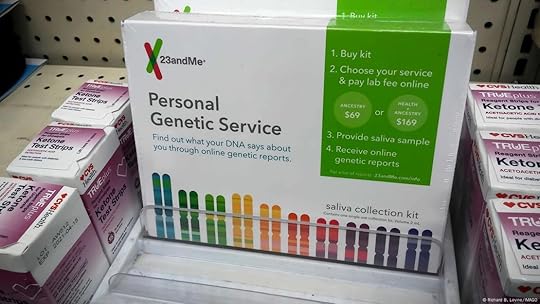DNA Tests: Who’s Getting Rich with Data from Our Genes

DNA Tests: Who’s Getting Rich from the Data from our Genes
DW (2025)
Film Review
Although DNA links to national origin have never been scientifically validated, 50 million people worldwide have submitted DNA samples to “trace their ancestry.” Turing over over $2 billion annually, the three main DNA testing companies are Ancestry.com, 23andMe and My Heritage.
All three companies base conclusions about a client’s national ancestry by comparing their DNA profiles to those in their database. The conclusions they offer are purely theoretical as there is minimal peer-reviewed research to support them.
The complete decoding of human DNA in 2000 made it possible to link a handful of genetic diseases to specific DNA codes. This inspired the Icelandic government to do DNA testing on 160,000 volunteers who voluntarily submitted health histories. Six years later a Silicon Valley startup launched 23andMe, the first private DNA testing company. The co-founder and CEO Anne Wojiski was married to Google’s co-founder, who used Google’s massive compilation of data to assist her.
In addition to submitting saliva DNA samples, clients completed a health questionnaire covering medical history and lifestyle factors. In 2008 her DNA test was awarded the Time magazine Invention of the Year.
In 2013, the FDA ordered 23andMe to stop offering testing for genetic disease risk after they issued several false reports on individuals who turned out to have rare genetic illnesses. The bad publicity forced them to drop their prices. They eventually sold testing kits at a lost and secured most of their revenue from selling the data they collected (much of it to pharmaceutical companies).
In 2019, 23andMe won the Big Brother Award, a mocking award recognizing “the government and private sector organizations doing the most to threaten personal privacy”.
After 23andMe launched a partnership with Glaxo Smith Kline in 2023, the value of their individual data sets dropped from $60 to $17.
In New Zealand current regulations allow insurance companies to require anyone with DNA testing to hand over the results to qualify for medical and life insurance. Women with the BRACA 1 gene are at 70% increased risk for breast cancer and 60% increased risk for ovarian. This means many of them can’t get private health insurance.
New Zealand is the last country in the world to allow this kind of “genomic” discrimination. At present Kiwis frequently shun “life saving” DNA tests for genetic illnesses because their afraid of losing their insurance.
The event that eventually bankrupted 23andMe was the hacking of 7 million users’ data, subsequently offered for sale onthe Dark Web. After paying $23 million in damages, the company filed for bankruptcy in March 2025. A non-profit organization led by Wojiski TTAM Research Institute ultimately bought it for $305 million.
The Most Revolutionary Act
- Stuart Jeanne Bramhall's profile
- 11 followers



